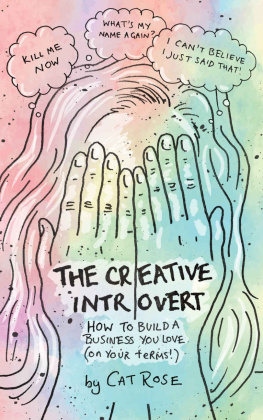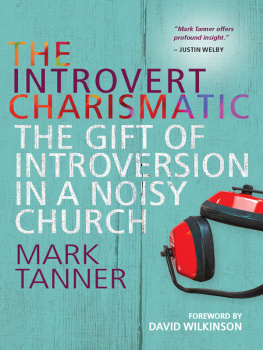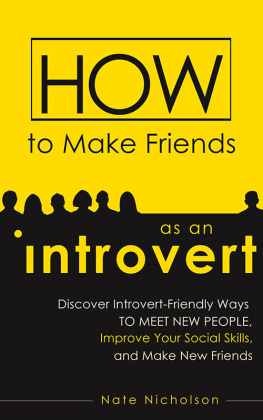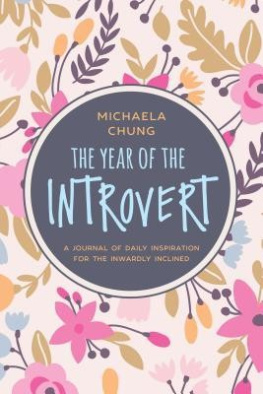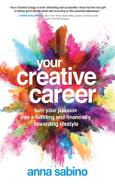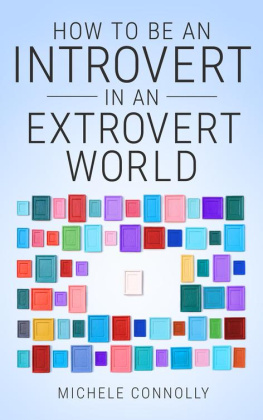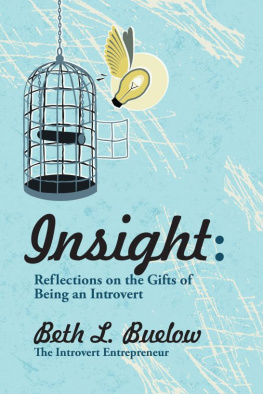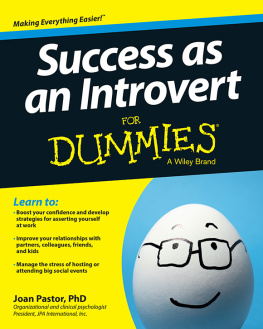THE CREATIVE INTROVERT
How to Create a Life You Love (On Your Terms)
by Cat Rose Neligan
Copyright 2018 Cat Rose Neligan
Published by: Cat Rose Neligan
First Edition
No part of this publication may be reproduced, stored in a retrieval system, or transmitted, in any form, or by any means, electronic, mechanical, photocopying, recording, or otherwise, without the prior consent of the publisher.
The publisher makes no representations or warranties with respect to the accuracy or completeness of the contents of this book and specifically disclaims any implied warranties of merchantability or fitness for a particular purpose. Neither the publisher nor author shall be liable for any loss of profit or any commercial damages.
About the Author
Cat Rose has been exploring what it means to be a creative introvert and thrive in this noisy world since going freelance in 2013. Her podcast, The Creative Introvert helps thousands of creative introverts every month to create confidently, show their work and acknowledge their wins.
Born in South-east London, she moved to the colourful seaside city of Brighton, in 2016. Happy to be alone in a new city, but it wasn't long before Cat found herself forming a creative community and stepping further outside her introverted comfort zone.
Since then she has delivered talks and workshops on self-promotion, community and creativity for corporate clients, universities and creative organisations. A regular contributor to the Huffington Post, her work has also featured in Thought Catalogue, Elephant Magazine and as been interviewed on The Janet Murray Show, The Introvert Entrepreneur, Inspiring Creatives amongst others.
Cat has travelled to dozens of countries, craving the mixture of peace and excitement that solo travel entails. She really does love cats - but doesn't own one (yet) and enjoys drawing mandalas to wind down in the evening.
Website: www.thecreativeintrovert.com
Twitter: www.twitter.com/creativeintro
Instagram: www.instagram.com/creativeintro
CONTENTS
An Introverted Introduction
The woman leaned over, smiling kindly as she offered me a fruit pastille. I graciously accepted candy from a stranger, as though in doing so the sugar would somehow absorb into my bloodstream and make life sweet again, rather than simply causing an insulin spike.
If this isn't evidence of the kindness of strangers, I don't know what is. To really set the scene: this was a rainy day in the October of 2010. I was still proverbially wet behind the ears, having recently graduated from the University of Reading with a fairly respectable degree in Graphic Communication and Typography.
I was three months into my internship at a small digital agency in London's West End, and I had stormed out of the office in tears approximately 45 minutes prior. I was still sobbing, red-faced, as I sat on the train, urging it to leave the station and take me away from the hell of London Victoria as swiftly as possible.
Come to think of it, the kindly, sweet-bearing lady didn't have much of a choice. You can't really enjoy your fruit pastilles if you're sat opposite someone showing signs of hysteria, increasingly turning as red as her hair by the second. Might as well offer her one.
So... what was the reason for the waterworks and the storming out, two hours before the day's end? There were a multitude of reasons, from unfair salary to a narcissistic CEO, but what persisted and what sparked this book into being was the dawning of a discovery I wouldn't fully grasp for another three years.
I left that sadistic internship the next day yay but the underlying problem causing my chronic distress and dissatisfaction followed me into my next job. There, I found a much more fair, friendly and above-board company to work for. Yet whilst my circumstances improved on paper, the storm brewing inside me did not.
Let's piece the evidence together and see if we can diagnose the Cat of circa 20102013 with the real underlying problem:
The highlight of her workday is the first hour. Quiet time to herself before the remainder of the office (comprising 3040 individuals at any given time) clocks in.
After this, she starts to exhibit signs of quiet distress. Her brow furrows, and grooves get deeper throughout the day, until 5:30pm comes and she resembles a raisin you might consider putting on your cereal.
She is in a state of constant lethargy, despite the fact she spends approximately 80% of her day sitting.
The kindly co-workers around her, who mean well with their table football and darts, just can't understand why she is spontaneously crying. Is it something they said?
When I looked at these symptoms in the thick of my malaise, I assumed that I was fatally flawed. A broken human who couldnt hold down a respectable job that plenty of other young graduates would have given their left eyebrow for.
I actually never figured it out whilst I remained (miraculously) employed there. It took a leap of faith and a holiday to Japan for me to finally pack it in and save my boss and colleagues the discomfort of keeping Mount Cat from erupting.
My plan was to simply take a shot at this thing called freelancing, for the six months of savings I had. I can honestly say I had no idea what I was doing: I just had to test my hypothesis; that the 95 office grind was not a match for me. It turns out, I was on to something.
Overnight, I discovered energy I hadn't had in over three years. I woke up without the need for an alarm (and several snoozes), eager to open my laptop, inspired to start creating and refining and emailing and tinkering each and every day.
So what changed? What was it about my newfound lifestyle and work day turned me from Sourpuss to the Cheshire Cat? Did I just hate people? That didn't seem fair: I liked my colleagues very much. Plus, the more difficult clients hadn't disappeared: I was still dealing with some of the same people and arguably some even more prickly characters now.
Was I just spoiled with years of schooling and university that sheltered me from the grind of commuting each day to an office full of diverse characters and pressure to demonstrate initiative? But I've always been highly conscientious, hard-working and tolerant of rigid routine. Again, this didn't add up.
Eventually, discussing my confusion with a friend, he casually diagnosed me.
You're an introvert, then.
An introvert?! I balked. I could admit that I was a shy child, and had my own share of social anxieties, but on the whole I'd made huge progress in my social skills and increased my confidence over the years. I couldn't be an introvert!
Then he explained what the original definition of introvert is, coined by Carl Jung, Swiss psychoanalyst, and later expanded upon by Katharine Cook Briggs and her daughter Isabel Briggs Myers.
The confusion I had over my work history and much of my school years started to vanish. When I understood this new (old) definition of what an introvert really is, a whole world of self-knowledge and understanding of others opened up to me.
An introvert, defined in this book is:
Someone who gets drained by socialising in groups and recharges by being alone.
Someone who processes information slowly and deeply.
Someone who is NOT necessarily shy or quiet!
Newly armed with this information, my fascination grew. I started to understand why networking was so exhausting. I realised why in-house freelance contracts were not ideal, why I couldnt stomach networking, why I grew tired long before my more extroverted friends at the pub. I started to shape my business around remote work and clients who could accommodate that. I started turning to more strategic ways of getting my work in front of people. I started letting my friends know why I had to pull an Irish Exit so often.
Next page
